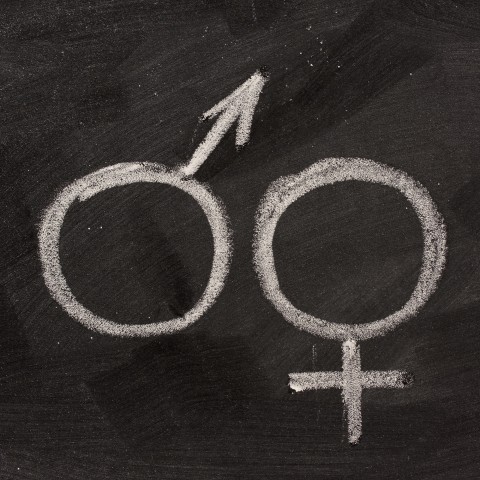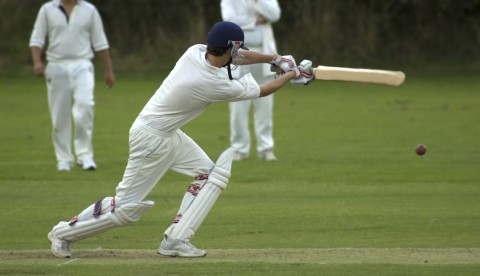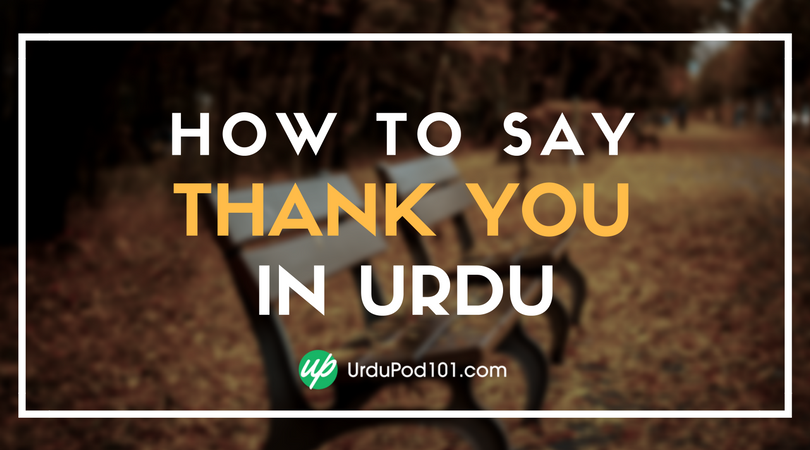
Do you aim at passing through the labyrinth of Urdu tenses without becoming lost in it? Like you, many Urdu learners are hesitant to enter the intricate maze of Urdu-language tenses and their numerous conjugations for the present, past, and future.
That said, you may be relieved to hear that dealing with mundane matters in the Urdu language does not require you to learn the verb tenses in Urdu to mastery. If you’re a smart learner with some linguistic common sense, you’ll find ways to formulate Urdu sentences for everyday usage—even if you only have a rudimentary knowledge of tenses.
In this article from UrduPod101, we’ll guide you through the vast world of Urdu verbs and tenses. You’ll learn how to form everything from the simple present to the future conditional, and the examples we provide along the way will help you understand how each tense is used.
Are you ready for the challenge?
 Table of Contents
Table of Contents
- An Overview of Urdu Verb Conjugation
- Present Tenses in Urdu
- Past Tenses in Urdu
- Future Tenses in Urdu
- Conclusion
1. An Overview of Urdu Verb Conjugation
Urdu verbs conjugate according to the person, mood, tense, voice, and gender. For now, though, don’t worry too much about the details. In this section, we’ll cover only the most important aspects.
- → Of course, if you do want to study these topics in greater depth, you can read our article Urdu Verb Conjugation: A Beginner’s Companion on UrduPod101.com!
A- Tense
As an Urdu learner, you should be glad to know that learning just three basic Urdu tenses can empower you to deal with any real-life situation in an Urdu-speaking society.
1. زمانۂ ماضی (zamana-e-maazi) – past tense
2. زمانۂ حال (zamana-e-haal) – present tense
3. زمانۂ مستقبل (zamana-e-mustaqbil) – future tense
If you can master using the present simple, past simple, and future simple effectively, you’ll be well-equipped to manage any situation or occasion that may arise while in Pakistan.
B- Mood
“Mood” refers to the speaker’s attitude toward the action described by the verb. This is a key factor in the conjugation of Urdu verbs, but we won’t go into too much detail here. For now, just keep in mind that there are four grammatical moods in Urdu:
- I – Indicative
- II – Subjunctive
- III – Conditional
- IV – Imperative

C- Simple vs. Complex Tenses
In Urdu, tenses can be further categorized as “simple” or “complex.”
A simple tense is one that does not make use of auxiliary verbs; a complex tense is one that does. By the end of this article, you’ll be able to easily distinguish one from the other.
D- Gender
In the Urdu language, every noun has a gender. While this can certainly make it a challenge to use nouns properly, it also affects the conjugation of Urdu verbs!

2. Present Tenses in Urdu
Because present tenses are the most commonly used in daily Urdu conversations, it’s appropriate for us to study them first. The Urdu present tense is used to describe actions that happen frequently, ongoing affairs, and what may happen in the future.
For your convenience and understanding, we’ll use a single Urdu sentence and verb throughout this article to demonstrate how a verb conjugates for each tense. We’ll use the Urdu verb کھیلنا (khelna), meaning “to play.”
Also keep in mind that each conjugation will be for the first person singular.
· فعل حال مطلق (fael haal mutliq) – Present Indefinite Tense
Masculine
- میں کرکٹ کھیلتا ہوں۔
Mein cricket khelta hun.
I play cricket.
Feminine
- میں کرکٹ کھیلتی ہوں۔
Mein cricket khelti hun.
I play cricket.

· فعل حال جاری (fael haal jari) – Present Continuous Tense
Masculine
- میں کرکٹ کھیل رہا ہوں۔
Mein cricket khel raha hun.
I am playing cricket.
Feminine
- میں کرکٹ کھیل رہی ہوں۔
Mein cricket khel rahi hun.
I am playing cricket.
· فعل حال مکمل (fael haal mukammal) – Present Perfect Tense
Masculine
- میں کرکٹ کھیل چکا ہوں۔
Mein cricket khel chuka hun.
I have played cricket.
Feminine
- میں کرکٹ کھیل چکی ہوں۔
Mein cricket khel chuki hun.
I have played cricket.
· فعل حال مکمل جاری (fael haal mukammal jari) – Present Perfect Continuous Tense
Masculine
- میں صبح سے کرکٹ کھیل رہا ہوں۔
Mein subah se cricket khel raha hun.
I have been playing cricket since morning.
Feminine
- میں صبح سے کرکٹ کھیل رہی ہوں۔
Mein subah se cricket khel rahi hun.
I have been playing cricket since morning.
Present Conditional
Masculine
- اگرمیں وقت پر آؤں تو کرکٹ کھیل سکتا ہوں۔
Agar mein waqt par aao tu cricket khel sakta hun.
If I come on time, I can play cricket.
Feminine
- اگرمیں وقت پر آؤں تو کرکٹ کھیل سکتی ہوں۔
Agar mein waqt par aao tu cricket khel sakti hun.
If I come on time, I can play cricket.
Present Imperative
Here, you can simply use the same sentence for both genders.
- کرکٹ کھیلو۔
Cricket khelo.
Play cricket.
3. Past Tenses in Urdu
You can’t expect to master any language without giving due consideration to the past tense forms of its verbs. In this part of the article, you’ll learn a few constructions that are widely used in formulating the Urdu past tense.
فعل ماضی مطلق (fael maazi mutliq) – Past Indefinite Tense
Masculine
- میں کرکٹ کھیلا۔
Mein cricket khela.
I played cricket.
Feminine
- میں کرکٹ کھیلی۔
Mein cricket kheli.
I played cricket.
فعل ماضی جاری (fael maazi jari) – Past Continuous Tense
Masculine
- میں کرکٹ کھیل رہا تھا۔
Mein cricket khel raha tha.
I was playing cricket.
Feminine
- میں کرکٹ کھیل رہی تھی۔
Mein cricket khel rahi thi.
I was playing cricket.
فعل ماضی مکمل (fael maazi mukammal) – Past Perfect Tense
Masculine
- میں کرکٹ کھیل چکا تھا۔
Mein cricket khel chuka tha.
I had played cricket.
Feminine
- میں کرکٹ کھیل چکی تھی۔
Mein cricket khel chuki thi.
I had played cricket.
فعل ماضی مکمل جاری (fael maazi mukammal jari) – Past Perfect Continuous Tense
Masculine
- میں صبح سے کرکٹ کھیل رہا تھا۔
Mein subah se cricket khel raha tha.
I had been playing cricket since morning.
Feminine
- میں صبح سے کرکٹ کھیل رہی تھی۔
Mein subah se cricket khel rahi thi.
I had been playing cricket since morning.
Past Conditional
Masculine
- اگر میں وقت پر آتا تو کرکٹ کھیل سکتا۔
Agar mein waqt par aata tu cricket khel sakta.
If I had come on time, I could have played cricket.
Feminine
- اگر میں وقت پر آتی تو کرکٹ کھیل سکتی۔
Agar mein waqt par aati tu cricket khel sakti.
If I had come on time, I could have played cricket.
4. Future Tenses in Urdu
Learning to speak or write about the future in Urdu is an essential skill that any Urdu learner will need to master eventually. To give you an idea of what to expect from the Urdu future tenses, we’ve compiled some example sentences for you.
فعل مستقبل مطلق (fael mustaqbil mutliq) – Future Indefinite Tense
Masculine
- میں کرکٹ کھیلوں گا۔
Mein cricket khelun ga.
I will play cricket.
Feminine
- میں کرکٹ کھیلوں گی۔
Mei cricket khelun gi.
I will play cricket.

فعل مستقبل جاری (fael mustaqbil jari) – Future Continuous Tense
Masculine
- میں کرکٹ کھیل رہا ہوں گا۔
Mein cricket khel raha hun ga.
I will be playing cricket.
Feminine
- میں کرکٹ کھیل رہی ہوں گی۔
Mein cricket khel rahi hun gi.
I will be playing cricket.
فعل مستقبل مکمل (fael mustaqbil mukammal) – Future Perfect Tense
Masculine
- میں کرکٹ کھیل چکا ہوں گا۔
Mei cricket khail chuka hun ga.
I will have played cricket.
Feminine
- میں کرکٹ کھیل چکی ہوں گی۔
Mei cricket khail chuki hun gi.
I will have played cricket.
فعل مستقبل مکمل جاری (fael mustaqbil mukammal jari) – Future Perfect Continuous Tense
Masculine
- میں صبح سے کرکٹ کھیل رہا ہوں گا۔
Mein subah se cricket khel raha hun ga.
I will have been playing cricket since morning.
Feminine
- میں صبح سے کرکٹ کھیل رہی ہوں گی۔
Mein subah se cricket khel rahi hun gi.
I will have been playing cricket since morning.
Future Conditional
Masculine
- اگر میں وقت پر آؤں گا تو کرکٹ کھیل لوں گا۔
Agar mein waqt par aaon ga tu cricket khel lun ga.
If I come on time, I’ll play cricket.
Feminine
- اگر میں وقت پر آؤں گی تو کرکٹ کھیل لوں گی۔
Agar mein waqt par aaon gi tou cricket khail lun gi.
If I come on time, I’ll play cricket.

5. Conclusion
In this article, you learned about both simple and complex tenses in Urdu. You should now have a better idea of how to conjugate Urdu verbs for each tense and gender. With some practice and real-world experience, you’ll be able to handle nearly any conversation topic using what you’ve learned today!
Do you already feel confident in your Urdu conjugation skills? Or do you still have a question or concern about something we covered? Don’t hesitate to reach out to us in the comments; we’ll get back to you at the earliest!
If you enjoyed this article, make sure to create your free lifetime account on UrduPod101.com today to explore the easiest and most effective ways to learn the Urdu language. You’ll benefit from a wide range of online Urdu resources, including simple guides to Urdu pronunciation and grammar, vocabulary lists, and more.
Very Happy Urdu Learning!










